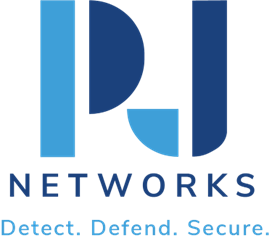The Role of VPNs in Remote Work Security
Let’s dive into the topic of VPN for remote work and how it influences the security of your operations. It’s more important than ever to secure your remote workspace and we’ll explore why.
What is a VPN and how it works
You might be familiar with the term VPN, but what exactly is it? A VPN, or Virtual Private Network, is like a secret tunnel between your device and the internet. It encrypts your online data and hides your IP address, giving you privacy and security even when using public networks.
Here’s how it works:
- When you connect to a VPN, it redirects your internet traffic through its servers.
- This masks your online activities by changing your IP address.
- Your data is encrypted, making it unreadable to potential eavesdroppers.
Benefits of VPNs
Using a VPN can offer numerous benefits, especially for remote work scenarios. Let’s break these down:
- Enhanced Security: All your online actions are shielded from prying eyes.
- Access Control: You can securely access your company’s internal documents and systems.
- Global Reach: Get access to geo-restricted content, which can be vital for market research.
In essence, a VPN provides a layer of security, especially useful when you’re working from a coffee shop or other public spaces.
Limitations and risks
However, it’s not all sunshine and roses. Relying solely on a VPN might not be enough. Here’s why:
- Over-reliance: Treating VPN as a magic wand for all security problems is risky.
- Performance Issues: VPNs can slow down your internet connection, affecting productivity.
- Trust Matters: Free VPNs might compromise your data rather than protect it. Always opt for a reputed service.
VPNs cover only a fraction of what you should consider for robust security. Remember, they protect online traffic, but not the endpoint devices themselves.
Alternatives and supplementary tools
While VPNs are essential, they’re most powerful when combined with other cybersecurity tools. Let’s explore some alternatives and complements to strengthen your security posture:
- Multi-Factor Authentication (MFA): Enhances security by requiring multiple forms of verification.
- Endpoint Protection: Security software that protects devices from malware and other threats.
- SOC (Security Operations Center) services: 24/7 monitoring that identifies and responds to threats in real-time.
- Data Encryption: Beyond VPNs, protect sensitive data with advanced encryption methods everywhere.
Think of these tools as layers of a fortress – each addition increases your defense against cyber threats.
Conclusion
In our ever-connected world, ensuring the security of remote work setups is vital. A VPN for remote work is a foundational security measure, but it’s just one piece of the puzzle. By leveraging other remote cybersecurity tools, you, I, and we all can create a more secure remote working environment.
